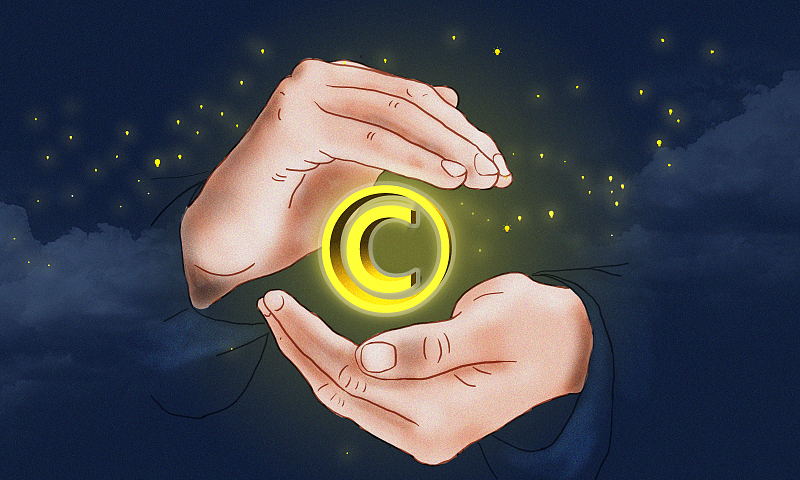Amended copyright law will make it tough for plagiarists
By LI YANG | China Daily | Updated: 2020-12-22 07:54

The newly revised Copyright Law will come into effect from June 1 next year.
The law, which has been amended in 2001, 2010 and 2020, plays an important role in protecting copyright owners' legitimate rights and has been promoting innovation and creativity ever since it was introduced in 1990.
Revisions over the past two decades have helped the law adapt to the changes of the times, addressing the fast changing demands for copyright protection thanks to socio-economic development.
The latest version of the law, if properly implemented, can help revolve many copyright issues that have been cropping up. For instance, the revised law classifies both "films" and "other categories of works similar to films" as "audio and visual works". That means popular short videos and other new media products, which are neither treated as films or works similar to films now, will cease to be outside the purview of the law. With the new law, copyright owners of short videos and other new media products will be able to bring plagiarists to book.
The amended law also targets plagiarism in the we-media sector by changing the type of content that is not subject to copyright protection from "current affairs and news" to "purely factual information". That will make it difficult for online fake news writers to give news reports juicy twists for attracting clicks.
For too long, these plagiarists have been taking advantage of the loopholes in the law, which stipulates that copyright protection clauses do not apply to news. However, the revised law pays special attention to protecting the "originality" of the news, recognizing that professional narrations, analyses and commentary can cause enough damage while escaping purview.
The amendment has also raised the maximum compensation for copyright infringement to 5 million yuan ($763,215) from 500,000 yuan.
The new law definitely addresses many concerns. If strictly implemented, many chronic problems can be solved and copyrights owners' legal rights and interests can be better protected.
























